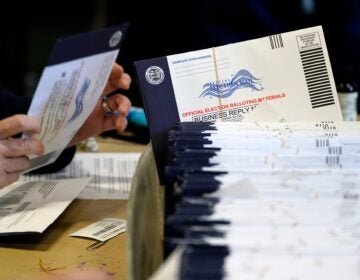The case for official English in Pennsylvania and the United States.
I’ve always thought it a fluke that the United States has no official language. Why didn’t the founding fathers specify an official language in the Constitution? They probably didn’t think of it, since they had other more difficult issues to work on. Or maybe they did think of it, but concluded an official language was unnecessary because it was so obvious that the Constitution itself and the Declaration of Independence were in English, and all the business of the new government and all of its states were conducted in English.
Regardless of the reason, the failure to designate an official language has allowed language minorities to demand translations of official documents and taxpayer funded translators in U.S. courts and other government institutions. Under the Voting Rights Act language minorities among U.S. citizens are entitled to vote on ballots translated into their own languages other than English.
In other countries with more than one official language, like Canada and Belgium, all government documents must be published in both official languages and government translators provided at all official functions. But that has not quelled separatist sentiment from flaring up along language lines, and on-going battles over public signage and what language to teach to newcomers.
The bureaucracy and parliament of the European Union, with its 23 official languages, is sinking into financial quicksand as it tries to translate every parliamentary bill and draft regulation into each language.
In the U.S. with no official language, every language is equally official. What happens when law violators claim that they don’t have to obey laws not published in their own equally official language? Those claims have been made and upheld in courts in Canada and other countries with more than one official language.
That’s why 27 of the 50 states have designated English as their official language. (Pennsylvania, New Jersey and Delaware are in the minority without an official language.) Hawaii has designated both English and Hawaiian as official. New Mexico has designated both English and Spanish as official. Bills to designate English as the official language of the United States are regularly introduced to Congress, but so far without sufficient support for passage.
Designating English as an official language only means that laws and other government enactments are legally sufficient and binding when enacted and published in English. Making English official does not preclude government from offering services in other languages if it chooses to do so. It does not outlaw the use of other languages. But it does limit taxpayer obligation to provide translation services to those areas where required for criminal justice or where specifically designated by legislation.
I support and encourage Americans to study foreign languages, both for their own individual enjoyment and benefit, and because it’s in the national interest for Americans to speak and do business with, and try to understand, people all over the world.
But having a single common language has always been a strength for a country as large as the United States. How else can Americans participate in public discussion of our common issues and problems?
As immigration becomes easier, maintaining the American advantage of a single common language becomes more of a challenge. Designating English as our official language fills the gap left by our founding fathers and helps to keep the language wars, divisions and problems of Canada, Belgium, and the European Union away from our shores.
WHYY is your source for fact-based, in-depth journalism and information. As a nonprofit organization, we rely on financial support from readers like you. Please give today.




